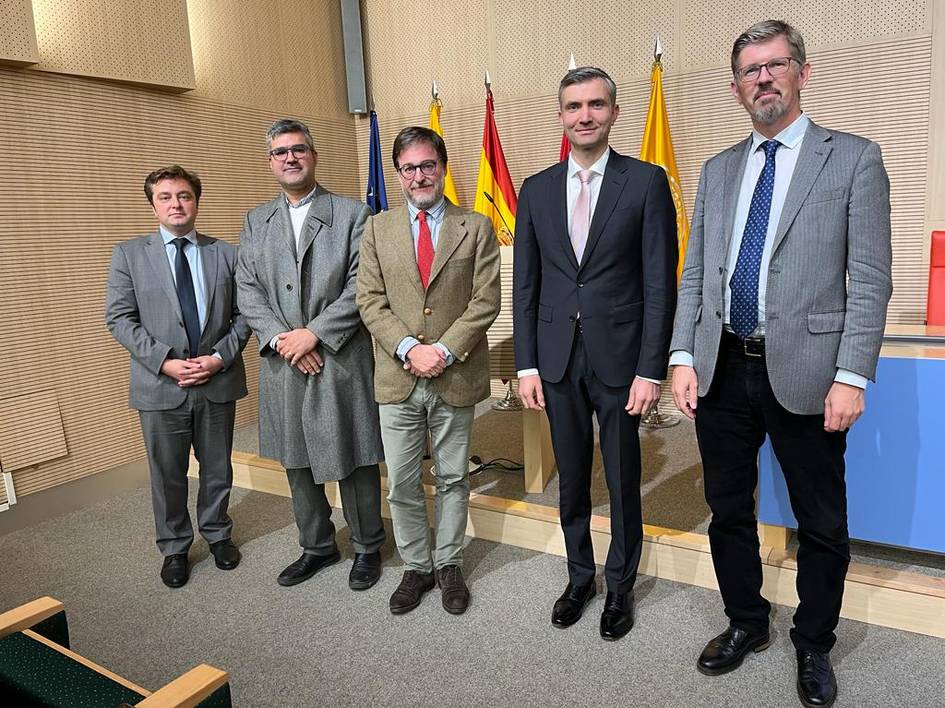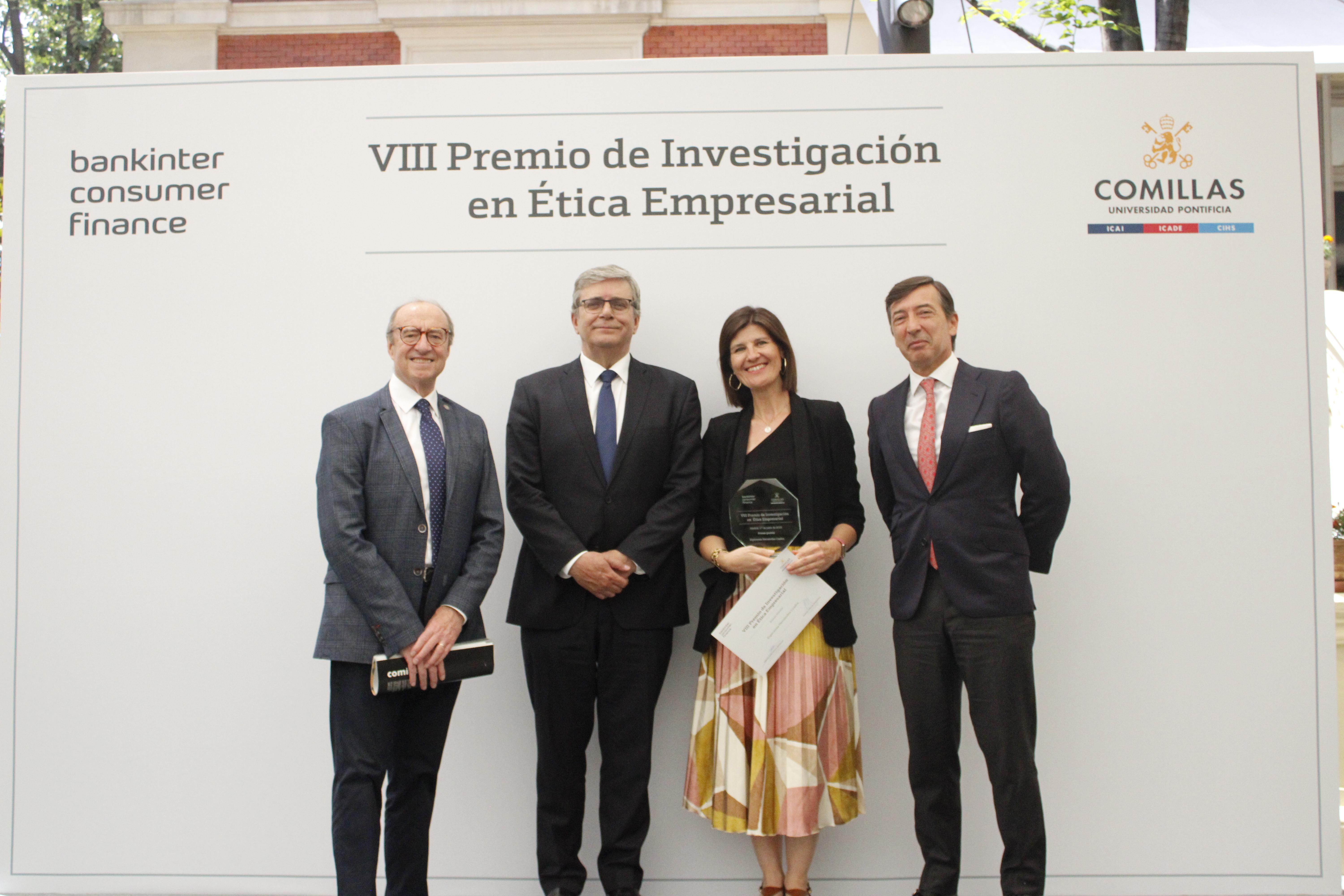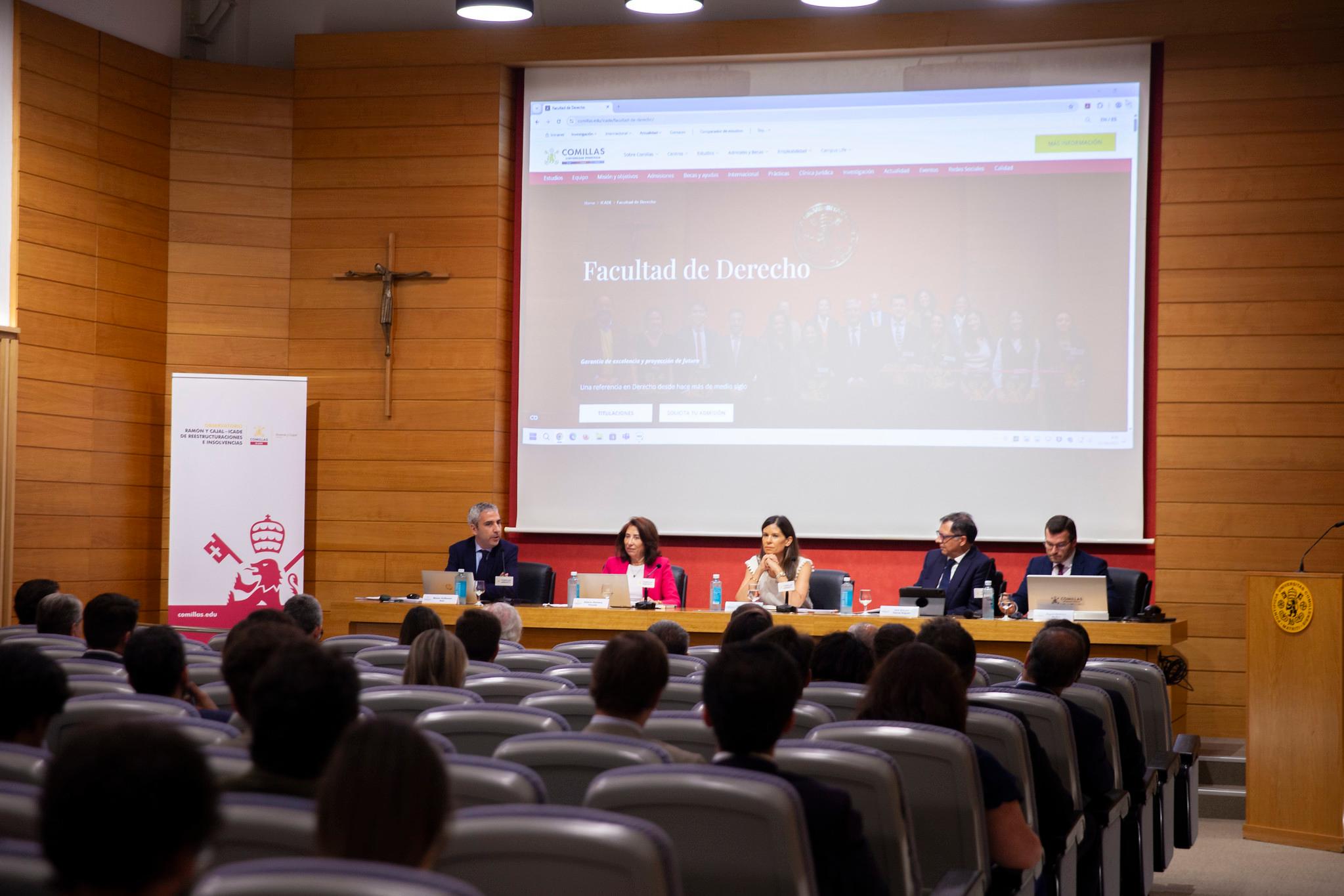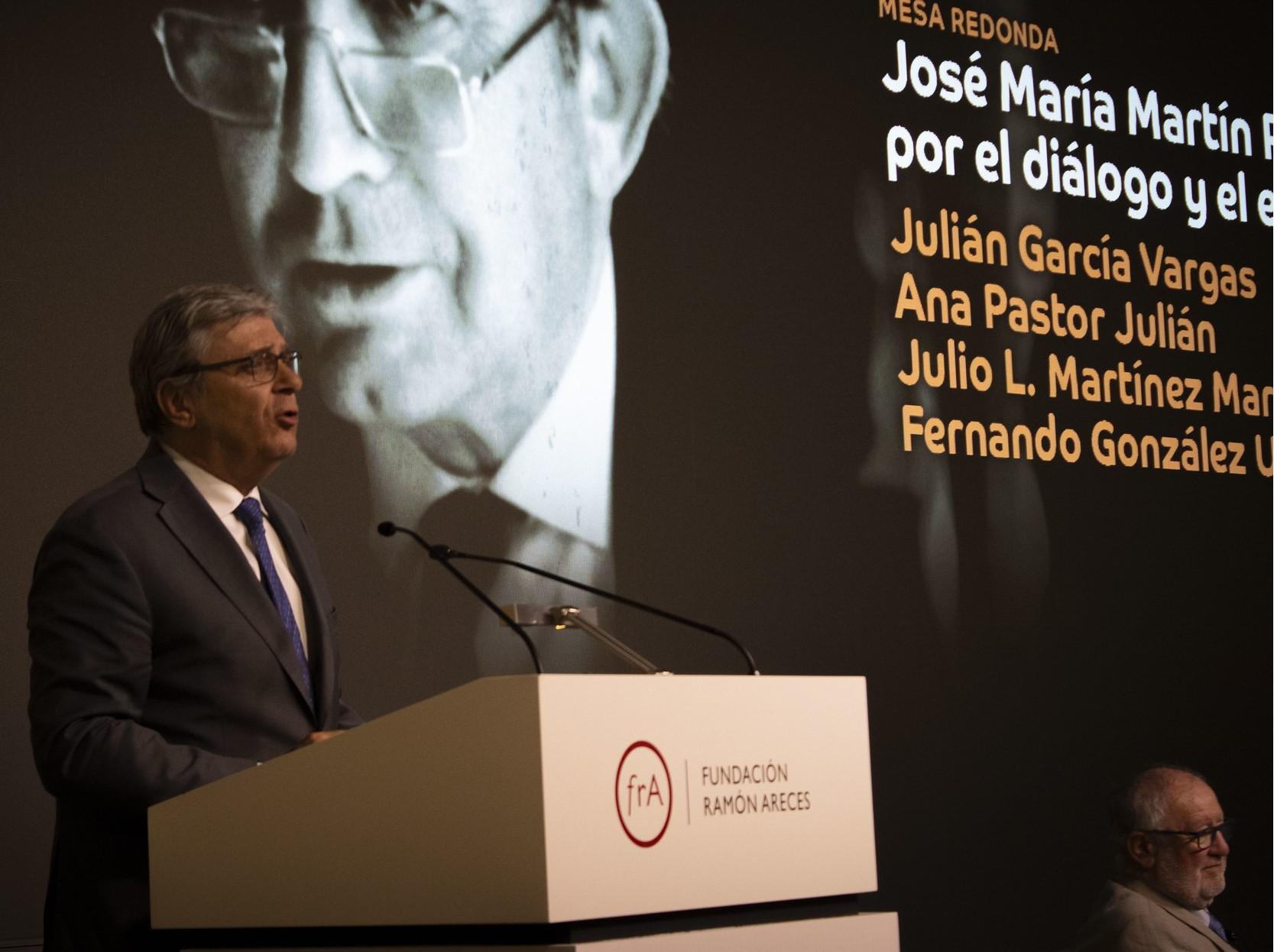Russia's invasion of Ukraine worsens in its aftermath
The Department of International Relations at Comillas CIHS organised a conference with Dmytro Matiuschenko, Chargé d'Affaires of the Ukrainian Embassy in Madrid

27 October 2023
The Department of International Relations of the Faculty of Humanities and Social Sciences (Comillas CIHS), organised the conference "Consequences of Russia's war against Ukraine. Kyiv a new key player on the geopolitical map" , given by the Minister-Counsellor of the Ukrainian Embassy in Madrid, Dmytro Matiuschenko, in which he analysed the main consequences that the Russian invasion of Ukraine has caused so far, without forgetting the occupation of Crimea in 2014.
The vice-dean of International and External Relations of the faculty, José Manuel Sáenz Rotko, and the head of studies of the Dual Degree in International Relations - Bachelor in Global Communication, Javier Gil, presented the event.
During his speech, the Minister Counsellor reviewed the history of his country, and the milestones that determine a Ukrainian national identity different from the Russian one. He also spoke about the moments when, beyond the achievement of independence in 1991, Ukraine has achieved statehood throughout its history. "Understanding history is key to understanding the Ukrainian cause," he said.
He also highlighted some of the more perverse aspects that have resulted from Russian aggression. Among them, the deportation of thousands of children from occupied Ukraine to Russian territory; and perhaps lesser known aspects of the conflict, such as its global impact in the food field, given Ukraine's profile as one of the world's main food producers (maize, wheat, barley, etc.). These resources were largely destined for the neediest areas of the Global South.
Matiuschenko analysed the reasons why, in his opinion, Russia illegitimately occupies its seat on the UN Security Council, and explained the need to reform this fundamental body of the organisation. At the same time, he stressed that his country is already working on the quantification of the material damage caused by the invasion, both to Ukraine and to foreign interests, and is already working with the relevant bodies on the implementation of what should be the reparations.
Finally, he stressed the need for the media and academia to adopt the Ukrainian spelling for toponymy and proper names relating to Ukraine, given that the perpetuation of the Russian spelling has become an argument to legitimise the invasion.
The lecture was followed by a lively question-and-answer session by the large number of participants, most of them students of the Dual Degree in International Relations - Bachelor in Global Communication. The event was closed by Emilio Sáenz-Francés, Director of the Department of International Relations, who highlighted the constant commitment of Comillas to Ukraine after the Russian invasion of the country.
You may also be interested in

VIII edition of the Business Ethics Research Awards

Legal, economic and academic experts analyse the challenges and solutions in the field of corporate insolvency

Comillas Pontifical University and the Ramón Areces Foundation held a round table in tribute to José María Martín Patino, on the centenary of his birth, highlighting his role as a reference point for social and ecclesial dialogue
